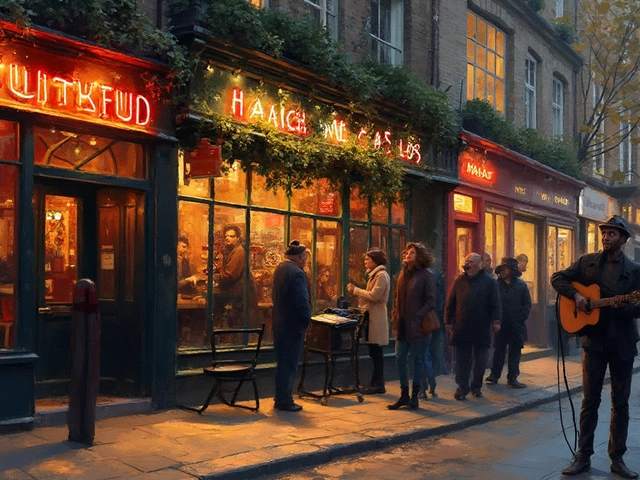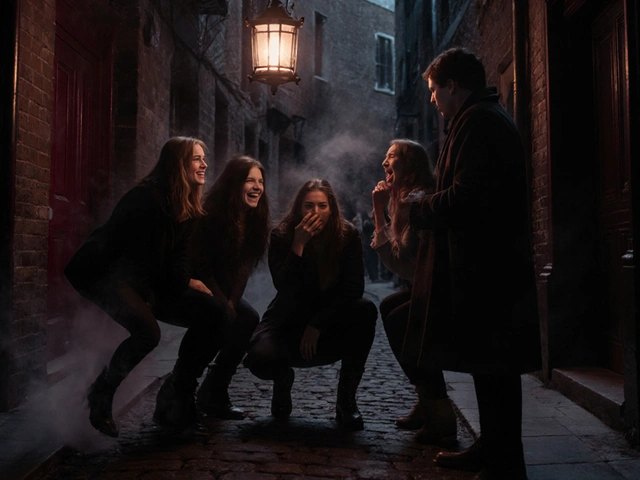Stigma in London Food and Nightlife
When you walk the streets of London, you’ll see a mix of upscale wine restaurants, underground clubs, family-friendly parks, and hidden‑gem eateries. Yet a lot of people feel judged for where they eat, who they go out with, or what they drink. That feeling is called stigma, and it can keep you from trying great food or having a fun night.
Stigma shows up in many ways. Some think it’s weird to eat at a cheap street stall when you’re with a fancy crowd. Others avoid clubs that aren’t “mainstream” because they fear being labeled. Even families shy away from tech‑free activities, thinking they’re missing out on what’s cool. All these ideas shape decisions and limit experiences.
Why Stigma Exists
First, social cues matter. People look at the price tag, the crowd, or the vibe before deciding if a place fits their image. A wine‑focused restaurant might seem snobby, while a hidden gem in East London feels like a secret for locals only. That exclusivity creates a barrier for newcomers.
Second, media reinforces stereotypes. TV shows often glorify high‑end dining and big club nights, making anything else feel less valuable. When you read a guide that only lists “best night clubs near me,” you might overlook smaller venues that offer a unique vibe.
Third, cultural expectations play a role. Certain cuisines, like Chinese or Middle Eastern fast food, get labeled as “budget” or “ethnic,” even though they can be top‑quality. This makes some diners skip a great sushi spot or a halal bakery because they assume it’s not worth the hype.
How to Overcome It
Start by questioning your own assumptions. Ask yourself why you think a place is “too fancy” or “too low‑key.” Then look at the facts: a hidden‑gem restaurant might have rave reviews from locals, and a budget-friendly pub could serve award‑winning dishes.
Use local guides that focus on experience, not price. Our tag page pulls together posts about wine restaurants, romantic parks, night clubs, free‑food spots, and family digital‑detox ideas. Skim the descriptions, pick what sounds fun, and give it a try.
Bring a friend who’s open‑minded. Trying new food or a club together cuts the awkwardness and makes the night feel safer. If you’re worried about judgment, choose a low‑key venue first, then work up to bigger nights.
Finally, share your own experiences. Posting a short review of a sushi place you loved or a night club that surprised you helps break the cycle. When more people talk about diverse spots, the stigma fades.London is full of hidden gems, from free‑food pop‑ups to upscale wine bars. Don’t let stigma decide where you go. Pick a spot, enjoy the vibe, and remember that great experiences often live outside the mainstream.
Adult Entertainment and Mental Health: Real Talk You Need
This article cuts through the noise about adult entertainment and its impact on mental health. We’ll look at what adult entertainment really means, how it can affect your mood and stress levels, and offer real-life tips for safer enjoyment. Expect facts, not judgment, plus honest talk about the ups, downs, and how to find balance. If you’ve ever wondered what’s fact versus hype when it comes to this topic—keep reading because we’re about to get real.
Categories
Popular Articles

Feb 7 2025

Nov 5 2025




